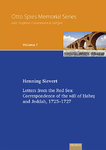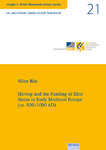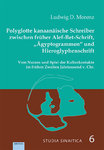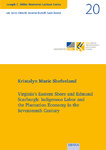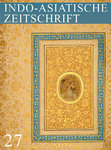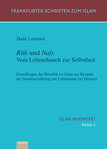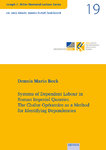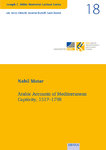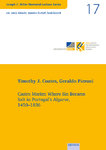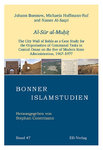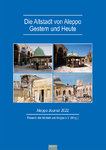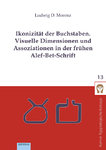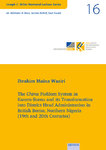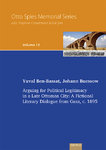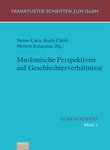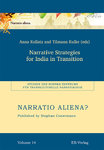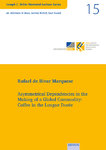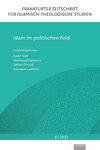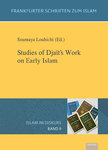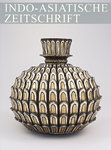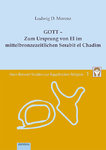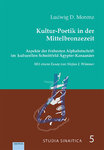Verlag für Wissenschaft und Praxis
- ISLAMWISSENSCHAFT
- ISLAMISCHE STUDIEN
- JOSEPH C. MILLER MEMORIAL LECTURES SERIES
- ASIENWISSENSCHAFT
- ARCHÄOLOGIE ALS KULTURWISSENSCHAFT
- RELIGIONSWISSENSCHAFT
- RELIGIONSPÄDAGOGIK
- GESELLSCHAFT UND KIRCHE
- KIRCHE UND GEMEINDE
- GESUNDHEIT UND KRANKHEIT
- KINDERGARTENPÄDAGOGIK
- OPEN ACCESS
- Neuerscheinungen
- In Vorbereitung
- News
- E-Books
- Einzelkataloge
Categories GESELLSCHAFT UND KIRCHE Reihe: Texte zur Wirtschafts- u. Sozialethik Band 8: Peacebuilding in Iraq
Band 8: Peacebuilding in Iraq
Artikel-Nr.: 9783868930177
Auf Lager
innerhalb 3 Tagen lieferbar
Preis inkl. MwSt.
This empirical research gives a deep insight on the impact of norms and values on peace activists in Iraq and Kurdistan. The indigenous peoples experience a radical social change where traditional normative orders are standing in opposite to modern value systems. But what does it mean to them? Peace activists and also politicians, scholars, doctors, journalists and housewives explain how they try to keep a balance between collective interests of their society and their individualism. Civil Society Organisations are supposed to play a major role in establishing a peaceful society. But what will happen if they fail to implement the right strategies? The interviewees reveal the harsh realities of the issues involved, such as democratisation, strengthening civil society and human rights.
Table of contents
List of tables
Preface of the Editor / Vorwort des Herausgebers
German summary / Deutsche Zusammenfassung
Acknowledgement
1. Introduction
1.1 Normative order fixing tradition and culture
1.2 People’s participation in Iraq
1.3 Redefining peacebuilding in societies like Iraq
2. Role of Norms and Values in Peace and Conflict Studies
3. Civil Society Organisations in Iraq
4. The social influence of peacebuilding
4.1 Normative order fixing tradition and culture
4.2 Risks of social change
4.3 Collective conscience
4.4 Individuality as a yardstick for peace
4.5 Norm conflicts
4.6 Striving for universal norms and values
4.7 Human rights or imperialism
4.8 Civil society in peacebuilding
4.9 Cognitive dissonance
4.10 Concluding comments
5. Methodology and research design
5.1 The approach of grounded theory
5.2 Tracing the informant’s experience and narrative
5.3 From single case to typology
5.4 Research design
5.5 The surveyed groups
5.6 Research population
5.7 The design of the questionnaire
5.8 Lost in translation or how do we know what it means?
5.9 Transcription of interviews
5.10 Methods of data collection
5.11 How to open a normative account for trust-building
6. People’s participation in civil society organisations
6.1 Tradition and culture in peacebuilding processes
6.2 The autonomy of the individual in a collective society
6.3 Meaning and motivation of people’s participation
6.4 Democracy, civil society and human rights
6.5 Potpourri of perceived conflicts
6.6 Conflict regulation 6.7Fighters and conformists
7. Summary and Conclusions
8. Recognition and prospect
Annex 1: Map of Region Iraq-Kurdistan
Annex 2: Ethnic Map of Iraq
Annex 3: Questions of interview
Annex 4: Terms of reference Bibliography Publications and presentations
List of tables
Table 1: SAF Method
Table 2: Parsons’ model of the social action system
Table 3: Survey Selection
Table 4: Timeframe structure of interview
Table 5: Types of actors I
Table 6: Types of actors II
Table 7: Relational framework of actors
Table 8: Relationship between individual and society
Table 9: Relational framework of all interviewees




